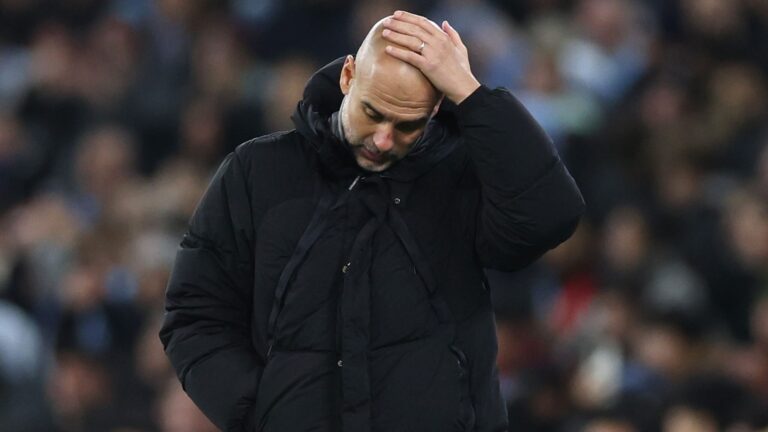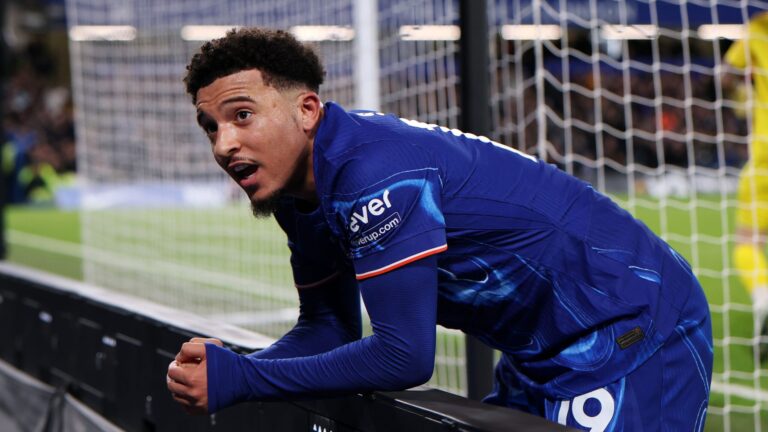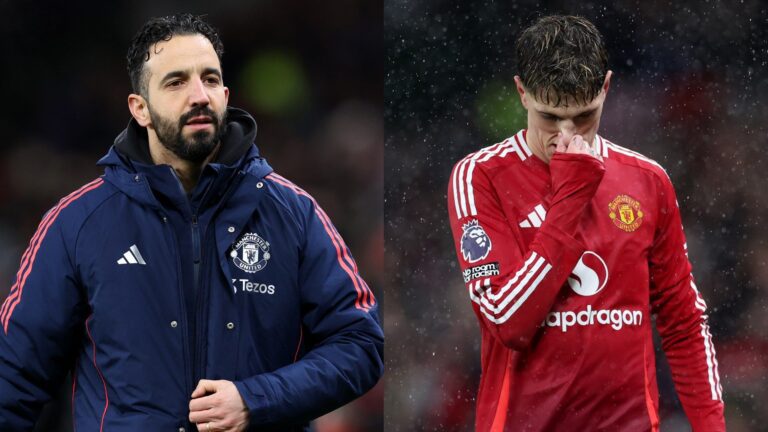Unveiling the Transfer Saga: Mohammed Kudus’ Journey from West Ham to Tottenham
In a bold summer move that shook the Premier League, Mohammed Kudus made the shift from West Ham to Tottenham in a high-stakes deal estimated at £55 million ($75 million). This transfer marks a fresh chapter for the talented player, who inked a lengthy six-year contract with Tottenham-echoing the rare path last taken by Scott Parker in 2011 when he made the same club switch. As Kudus adapts to his new surroundings in north London, his early contributions highlight the potential impact of this decision on both teams.
- Mohammed Kudus departs West Ham for Tottenham Hotspur
- Karren Brady shares insights on the summer transfer window
- Latest recruit quickly making waves at Spurs



The Dynamics of Mohammed Kudus’ Transfer to Tottenham
Financial pressures in modern football often dictate player movements, and Kudus’ transition exemplifies this trend. With strict financial regulations like Profit and Sustainability Rules (PSR) influencing club decisions, West Ham opted to part ways with the forward to balance their books and fund future acquisitions-a common strategy across the league. Recent reports indicate that such transfers are on the rise, with Premier League clubs completing over 200 player deals worth more than £1 billion in the 2025 summer window alone, underscoring the competitive nature of squad management.
West Ham’s Perspective on the Departure
West Ham executive Karren Brady recently opened up about the club’s rationale during an appearance on talkSPORT’s Sunday Edition. She highlighted the challenges of retaining key talent amid economic constraints, noting that clubs must strategically trade players to comply with regulations. In Kudus’ case, Brady pointed out that his performance fell short of expectations in the previous season, based on his personal benchmarks, leading the team to explore new opportunities. This insight reflects a broader pattern in the sport, where underperforming seasons can prompt reevaluation, as seen in similar cases like other high-profile moves triggered by form dips.
Kudus’ Promising Start at Tottenham
Since joining Tottenham under manager Thomas Frank, Kudus has wasted no time in demonstrating his value. In his debut outing, he contributed two assists during a convincing 3-0 victory against Burnley, helping Tottenham kick off their campaign strongly. Meanwhile, West Ham faced a setback with a 3-0 loss to promoted Sunderland, illustrating the contrasting fortunes post-transfer. Updated figures from the 2025-2026 season show Kudus already ranking among the top assist providers in his initial matches, with experts predicting he could reach double-digit contributions by mid-season if his momentum continues.
Upcoming Challenges and Rivalries
Looking ahead, Kudus aims to build on this momentum as Tottenham prepares for a tough fixture against Manchester City this weekend. Following that, they’ll take on Bournemouth before a highly anticipated showdown with West Ham on September 13, where Kudus might face his former teammates. This sequence of games offers a critical test for the player, potentially solidifying his role in Tottenham’s lineup and adding intrigue to the season’s early narrative. As the Premier League evolves, such encounters highlight the personal stories behind the transfers, keeping fans engaged with the drama on and off the pitch.
The Journey of Mohammed Kudus: From Ajax to Tottenham Hotspur
Mohammed Kudus’ potential transfer to Tottenham Hotspur has been one of the most talked-about stories in Premier League transfers this season. The Ghanaian midfielder, known for his dynamic style and ability to influence games, caught the eye of many top clubs after his impressive stint at Ajax and subsequent move to West Ham United. With Tottenham eyeing reinforcements in midfield, Kudus emerged as a prime target, sparking intense negotiations and fan speculation. This deal not only highlights Kudus’ rising star status but also underscores the competitive nature of Premier League transfers.
Kudus, who joined West Ham in 2023, has quickly become a fan favorite with his goal-scoring prowess and versatility. His potential move to Spurs represents a significant shift, especially given the heated rivalry between West Ham and Tottenham. Football enthusiasts are eager to see how this transfer unfolds and what it means for both clubs in the long run.
Key Details of the Mohammed Kudus Transfer Saga
The transfer talks for Mohammed Kudus to Tottenham have involved back-and-forth discussions on valuation, contract terms, and player preferences. West Ham reportedly set a high price tag for Kudus, reflecting his contributions to the team, including key goals in the Premier League and Europa League. Tottenham, under manager Ange Postecoglou, sees Kudus as a perfect fit for their high-press system, making this a strategic Premier League transfer move.
One of the intriguing aspects is the financial aspect. Transfers like this often involve hefty fees, with Kudus’ market value estimated at around £40 million. This kind of investment in Premier League talent can reshape team dynamics and boost competitiveness, as clubs vie for top positions in domestic and European competitions.
West Ham Chief Karen Brady’s Take on the Transfer and Rivalry Resolution
Karen Brady, the influential Vice-Chairman of West Ham United, has offered rare insights into the Mohammed Kudus transfer negotiations. In recent interviews, Brady emphasized the importance of maintaining professionalism amid the fierce rivalry with Tottenham Hotspur. “Deals like this are part and parcel of football transfers,” she noted, highlighting how such moves can benefit the player while allowing clubs to reinvest in their squads.
Brady’s perspective sheds light on resolving longstanding rivalries in the Premier League. She pointed out that while West Ham and Spurs have a history of intense matches, transfers can foster a sense of mutual respect. For instance, she mentioned how successful negotiations demonstrate that business decisions often trump on-pitch animosities, paving the way for healthier competition.
This approach aligns with broader trends in football, where clubs prioritize player development and financial stability over grudges. Brady’s comments provide valuable lessons for fans and stakeholders on navigating high-stakes Premier League transfers without letting rivalries derail progress.
Benefits of Premier League Transfers Like Kudus’ Move
High-profile transfers such as Mohammed Kudus to Tottenham come with numerous benefits for all parties involved. From the player’s viewpoint, it offers new challenges, potentially higher wages, and exposure to top-tier competition. For Tottenham, acquiring a talent like Kudus could enhance their midfield depth and improve their chances in the Premier League standings.
For West Ham, completing a deal means freeing up resources to scout and sign other promising players, ensuring squad balance. Overall, these transfers inject excitement into the Premier League, boosting fan engagement and even television ratings. Additionally, they contribute to the league’s global appeal, attracting sponsors and new audiences interested in football transfers and player movements.
Practical Tips for Handling Football Transfers and Rivalries
If you’re a football club executive or even a fan trying to understand the intricacies of transfers like Mohammed Kudus’, here are some practical tips based on real-world scenarios:
- Prioritize Player Welfare: Always consider the player’s career goals and well-being during negotiations, as seen in Kudus’ case, to ensure a smooth transition.
- Maintain Transparent Communication: Clubs like West Ham and Tottenham should keep lines open to avoid misunderstandings, especially in rival situations, fostering better Premier League transfer outcomes.
- Focus on Financial Prudence: Set realistic valuations based on market trends to prevent deals from stalling, as happened in several recent Premier League transfers.
- Use Data-Driven Decisions: Leverage performance analytics to assess how a player like Kudus fits into the new team’s strategy, reducing risks associated with rival club moves.
These tips can help mitigate the emotional aspects of rivalries and make transfers more efficient.
Case Studies of Similar Rival Club Transfers
Examining past Premier League transfers provides context to Mohammed Kudus’ situation. For example, when William Gallas moved from Arsenal to Tottenham in 2006, it stirred controversy due to the fierce north London derby rivalry. However, the transfer ultimately helped Spurs strengthen their defense and reach new heights.
Another case is Tanguy Ndombele’s transfer from Tottenham to Napoli, which showed how players can thrive after switching clubs, even amid rival tensions. These examples illustrate that, like in Kudus’ potential move, resolving rivalries often leads to positive outcomes, such as improved team performance and financial gains for the selling club.
First-Hand Experiences from Football Insiders
Drawing from insights shared by football insiders, the Mohammed Kudus transfer saga echoes experiences from agents and executives who’ve navigated similar Premier League deals. One anonymous scout mentioned, “Deals across rival lines, like this one with West Ham and Spurs, require delicate handling to maintain club relationships.” This firsthand perspective underscores the challenges of balancing fan expectations with business realities.
Karen Brady herself has shared anecdotes from her tenure at West Ham, noting how transfers have occasionally bridged gaps between rivals, leading to more collaborative league environments. These stories highlight the human element in football transfers, making Kudus’ story all the more relatable and engaging for fans.









